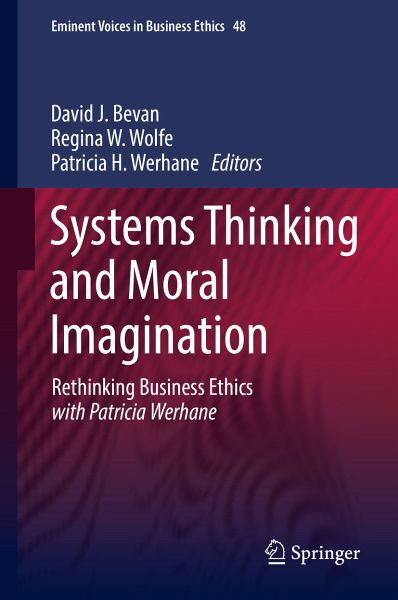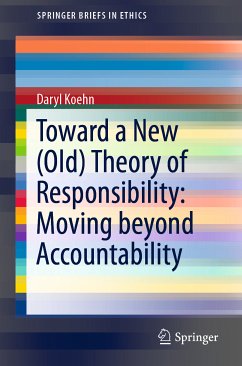
Systems Thinking and Moral Imagination (eBook, PDF)
Rethinking Business Ethics with Patricia Werhane
Redaktion: Bevan, David J.; Werhane, Patricia H.; Wolfe, Regina W.
Versandkostenfrei!
Sofort per Download lieferbar
72,95 €
inkl. MwSt.
Weitere Ausgaben:

PAYBACK Punkte
36 °P sammeln!
This volume brings together a selection of papers written by Patricia Werhane during the most recent quarter century. The book critically explicates the direction and development of Werhane's thinking based on her erudite and eclectic sampling of orthodox philosophical theories. It starts out with an introductory chapter setting Werhane's work in the context of the development of Business Ethics theory and practice, along with an illustrative time line. Next, it discusses possible interpretations of the papers that have been divided across a range of themes, and examines Werhane's contribution...
This volume brings together a selection of papers written by Patricia Werhane during the most recent quarter century. The book critically explicates the direction and development of Werhane's thinking based on her erudite and eclectic sampling of orthodox philosophical theories. It starts out with an introductory chapter setting Werhane's work in the context of the development of Business Ethics theory and practice, along with an illustrative time line. Next, it discusses possible interpretations of the papers that have been divided across a range of themes, and examines Werhane's contribution to these thematic areas.
Patricia H. Werhane is a renowned author and innovator at the intersection of philosophy and Applied Business Ethics. She is professor emerita and a senior fellow at the Olsson Centre for Applied Ethics at Darden and was formerly the Ruffin Professor of Business Ethics. She is also professor emerita at DePaul University, where she was Wicklander Chair in Business Ethics and director of the Institute for Business and Professional Ethics.
A prolific author whose works include Moral Imagination and Management Decision-Making and Organization Ethics for Health Care, Werhane is an acclaimed authority on employee rights in the workplace, one of the leading scholars on Adam Smith and founder and former editor-in-chief of Business Ethics Quarterly, the leading journal of Business Ethics. She was a founding member and past president of the Society for Business Ethics and, in 2001, was elected to the executive committee of the Association for Practical and Professional Ethics. Before joining the Darden faculty in 1993, Werhane served on the faculty of Loyola University Chicago and was a Rockefeller Fellow at Dartmouth College and Senior Fellow at Cambridge University.
Patricia H. Werhane is a renowned author and innovator at the intersection of philosophy and Applied Business Ethics. She is professor emerita and a senior fellow at the Olsson Centre for Applied Ethics at Darden and was formerly the Ruffin Professor of Business Ethics. She is also professor emerita at DePaul University, where she was Wicklander Chair in Business Ethics and director of the Institute for Business and Professional Ethics.
A prolific author whose works include Moral Imagination and Management Decision-Making and Organization Ethics for Health Care, Werhane is an acclaimed authority on employee rights in the workplace, one of the leading scholars on Adam Smith and founder and former editor-in-chief of Business Ethics Quarterly, the leading journal of Business Ethics. She was a founding member and past president of the Society for Business Ethics and, in 2001, was elected to the executive committee of the Association for Practical and Professional Ethics. Before joining the Darden faculty in 1993, Werhane served on the faculty of Loyola University Chicago and was a Rockefeller Fellow at Dartmouth College and Senior Fellow at Cambridge University.
Dieser Download kann aus rechtlichen Gründen nur mit Rechnungsadresse in A, B, BG, CY, CZ, D, DK, EW, E, FIN, F, GR, HR, H, IRL, I, LT, L, LR, M, NL, PL, P, R, S, SLO, SK ausgeliefert werden.












